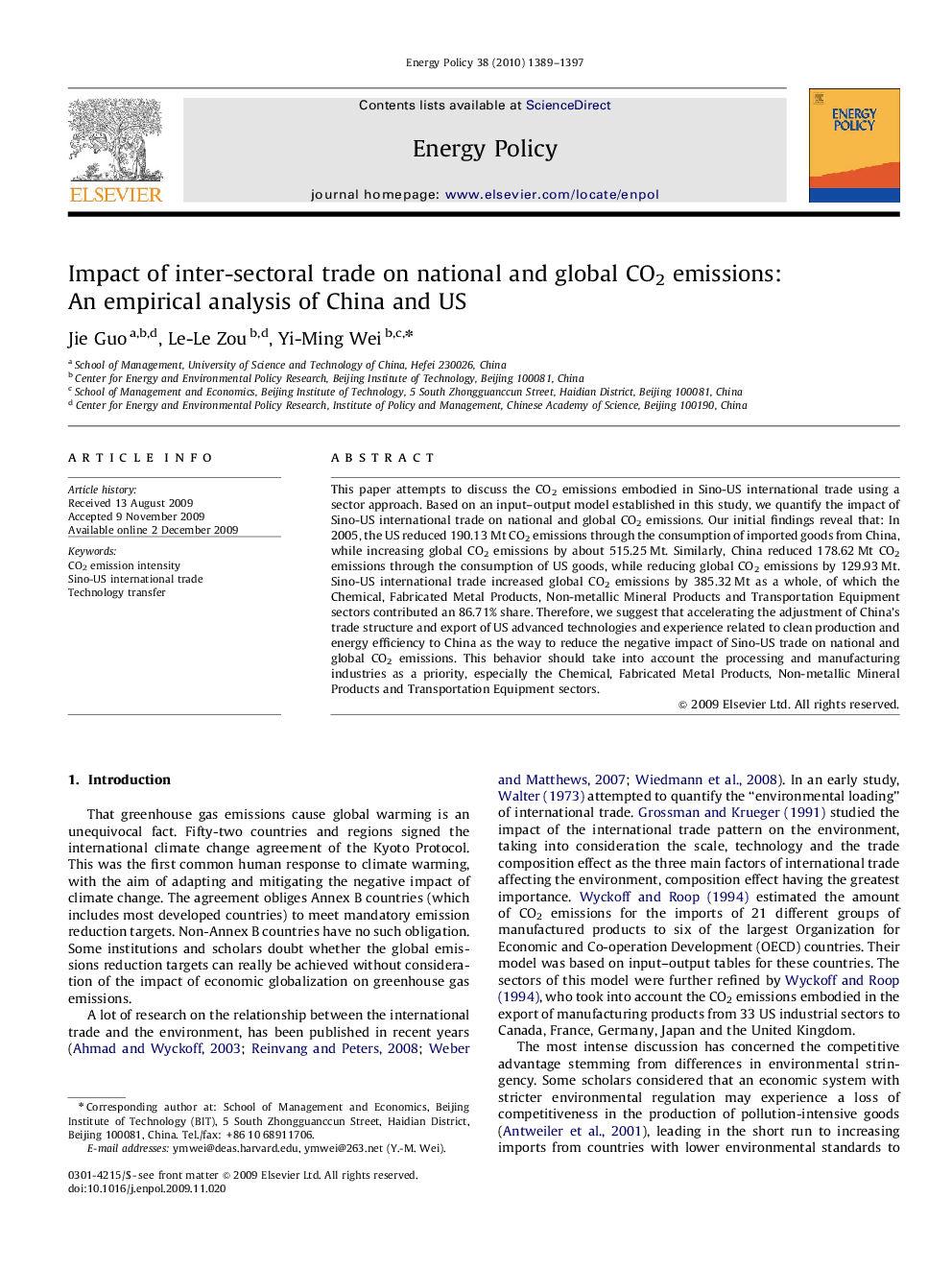| Article ID | Journal | Published Year | Pages | File Type |
|---|---|---|---|---|
| 993443 | Energy Policy | 2010 | 9 Pages |
This paper attempts to discuss the CO2 emissions embodied in Sino-US international trade using a sector approach. Based on an input–output model established in this study, we quantify the impact of Sino-US international trade on national and global CO2 emissions. Our initial findings reveal that: In 2005, the US reduced 190.13 Mt CO2 emissions through the consumption of imported goods from China, while increasing global CO2 emissions by about 515.25 Mt. Similarly, China reduced 178.62 Mt CO2 emissions through the consumption of US goods, while reducing global CO2 emissions by 129.93 Mt. Sino-US international trade increased global CO2 emissions by 385.32 Mt as a whole, of which the Chemical, Fabricated Metal Products, Non-metallic Mineral Products and Transportation Equipment sectors contributed an 86.71% share. Therefore, we suggest that accelerating the adjustment of China’s trade structure and export of US advanced technologies and experience related to clean production and energy efficiency to China as the way to reduce the negative impact of Sino-US trade on national and global CO2 emissions. This behavior should take into account the processing and manufacturing industries as a priority, especially the Chemical, Fabricated Metal Products, Non-metallic Mineral Products and Transportation Equipment sectors.
